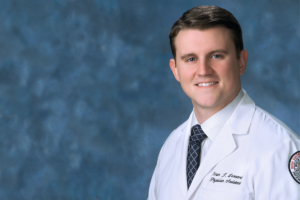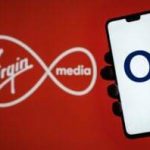
Born in Cleveland, Ohio, Evan James Leonard and his family relocated to Tampa, Florida, while he was in elementary school.
During high school, Evan was inspired to pursue a career that could positively impact the lives of others. This realization led him to the United States Marine Corps Reserves, where he served in a medical unit. As a compassionate and hard-working individual, his experiences caring for others paved the way for a future in medicine.
Evan enrolled in the University of Miami, Florida where he graduated second in his class. He obtained two master’s degrees in medical science and anatomy, both of which prepared him for his first position in the medical field as a physician assistant.
While he served as a physician assistant he worked in internal medicine with the University of Florida Healthcare System. He eventually transitioned to the emergency department in the same medical network. This experience cultivated much of his knowledge and goals for the future in his business and medicine.
He then enjoyed a position as an assistant professor to the Professor of Medicine and Anatomy at the Nova Southeastern University. Now working in Belmont, North Carolina he found academics and consultation a natural progression for his career.
Dr. Leonard enjoys spending time with his friends and family in his off-hours. He enjoys musical performances, the creativity of fiction and nonfiction literature, and engaging with new events at the school.
What do you currently do at your company?
As a solo entrepreneur, I am responsible for all the administration work. I am also able to enjoy the consulting and writing or analysis work for my clients. It doesn’t matter if it’s healthcare, education, or medical related, my clients are my primary focus.
With every project I take on, we discuss and plan before I begin. That makes it easier to ensure I am producing what the client requires. Working for large laboratories and companies requires a milestone by milestone layout from the beginning. This ensures that everybody is on track, communicating effectively, and being delivered the best quality service I possibly can.
Scientific analysis for the client, when requested and required, takes up a lot of my time. This includes a review of trends for practitioners and hospitals. Many clients reach out to me regarding my expert opinion on various scientific trends and the review of papers before they are even submitted, so I am often focused on research.
What was the inspiration behind your business?
Traditional education for doctors needs to change. It was important to me and continues to be important to me to change the way clinical education is conducted. Sitting and lectures, and taking exams has worked for centuries; however, practical application locks in those lessons. It also enhances the learning experience. I will be part of the clinical education revolution.
My efforts to help other institutions implement a more hands-on approach to their clinical training pushes me forward every day. Practical hands-on training has proven to be more effective for doctors in training. When we can provide better tools to our student doctors, future doctors will be better equipped to provide for our patients. I want to do my part to ensure our doctors continue to get better for patients and thrive doing what they love.
What defines your way of doing business?
It’s my greatest effort is spent to lead everything I do with empathy. That means before I complete a discussion or even contribute to one, I put myself in the other person’s shoes. That allows me to see what they’re saying from their perspective. Whether it’s my student or a client or just someone asking me for advice I think it’s important to understand them.
This empowers me to provide them with the best possible service. I’m able to better identify their needs and fulfill them successfully. It’s no longer just about what they want. It becomes about what we want. I’m able to formulate an action plan based on their perspective, wants, and goals. This applies to my students as well. You have to be in the other person’s shoes to really get a feel for their needs and adapt accordingly.
I know what I want is for my clients, big and small, to find the success that they need based on the results of the work I provide. The more I am able to relate to them the better I can produce results that meet the goals. That’s how I base everything I do in this business and all the activities I engage in.
What keys to being productive can you share?
Thankfully I have the ability to hyper-focus. First, I start out my day by organizing everything down to the hour. Everything is prioritized according to need. and then I sit down and I focus, one task at a time, and chip away at that list.
I’m able to identify what client projects are going to take how long and that makes my prioritization process much easier. So, if a client sets a deadline of a month out, but I know the project is going to take me a week, I make sure that my deadline accomplishes the project with enough time to get their opinion before it is complete.
Tell us one long-term goal in your career.
The most fitting industry role title for me is Medical Science liaison. You’re the educational scientific backbone between a medical company and its clinicians. In this position, you are speaking to key leaders on both sides of a discussion. You share the scientific information supporting each side and fill in the knowledge gap where necessary.
While I fulfill this role already for my customers, it is my goal to move more completely into this type of position. I appreciate being able to ascertain vital information and disseminate it accurately word necessary, I appreciate the impact of this effort stemming from the largest laboratory research to the individual doctor and clinician. Across the board, this is something that the industry requires because it continues to morph and develop very quickly.
How do you measure success?
Client outcomes and student results determine success for me. Unless an organization has a specific feedback model, such as a university does, it is important to be objective. For universities, this model provides insights, allowing us to know if students are appreciating our class or getting anything out of it. For larger organizations the results can be different, but if they’re the results they need from the very beginning I have done what I need to do. It is their results that determine my view of success.
It is important to me that my clients know I will go above and beyond to get those results for them. They are not just a critical part of my business, but most are fundamental individuals in the future of Medicine.
It is important that when we complete a transaction my clients feel they’ve gotten more than they’ve paid for.
What’s the most valuable lesson you’ve learned through the course of your career?
If I had to pick one thing, I would say empathy for my clients. I learned this lesson as a step beyond the customer is always right. That really is just the start of things. What I do is a bit more intimate. I am building individual relationships with my customers. Yes, they’re clients, they’re also thought leaders, developers of the future, and individuals I am proud to support.
With what I am doing, you’re addressing and working with high levels of information, data, analysis, and you need to get results. Empathizing with them first, getting their perspective, insurance they get what they want. I’m still giving my expert opinion. I’m formulating the information in a way that is both compelling and understandable. It needs to be practical. This is the value customers can look forward to. They will know what they are getting, what outcomes to expect, and from there, build towards their successes.
It’s this empathy first approach that made me profitable with my company in the very first year. Knowing your customers from their perspective is the greatest lesson for you to master.
What advice would you give to others aspiring to succeed in your field?
I would start by saying do what you love. In my field, everyone strives for additional education. There are doctorates, or medical school and physician assistant students with the goals motivated by money. Often when this is the case they fail at the goal. Seeking money for success is not the best motivation for something that requires dedication and consistency.
This is a field you have to be passionate about. You have to love what you’re dedicating yourself to in order to find any level of success. You will find anything you love should be able to consume you. Not that it should override the things that are more important, such as family and friends, and faith, but it should be at the same level.
This level of passion for the medical field ensures you’ll not only reach the positions you’re seeking, but you’ll leave an impact. Being consistent in your treatment, your continued education, and research you’re able to produce results. You cultivate positive relationships with patients, students, and anyone you engage with. Consistency from start to finish will carve a legacy, sharing your love for what you do with the world to come.
What are some of your favorite things to do outside of work?
I love nature. One of the many reasons I moved to North Carolina is because of the beauty and easy travel to the mountains. Hiking with some good music is a wonderful afternoon. I also enjoy attending concerts, the symphony and opera are some of my favorite live events. Equally as relaxing is the time spent over a nice meal with great friends. There’s nothing extravagant but if I had to narrow things down, it would be outdoor activities and live music events.
How would your colleagues describe you?
I believe they’d describe me as laidback, professional, serious when needed. This would apply specifically to scientific data. There’s always an effort to inject humor where appropriate and avoid being stressed over deadlines and things that unexpectedly surfacing. We’ll get the work done, regardless of what surfaces. There are times it’s an effort to be laid back when things are going haywire, but it’s something I aim to do.
As a teacher, my students flatter me often. I’ve heard comparisons to Dr. House and a walking medical dictionary. I am doing what I love, either as a teacher or consultant, evidently they see it. At least one student expressed how boring anatomy was until he took my class. He expressed how fun the class became once he attended with me. It really is passion for the subject that allows me to share fun and silly ways to help my students remember the material.
If you love the field you’re in you’re not going to really feel like you’re working. Life’s too short.
How do you maintain a solid work life balance?
It’s about prioritizing. Taking an active approach to life is part of having fun. Living in accordance to what you love helps you keep the right priorities and balance in life. In my life, I’ve come to realize that life is about God and about personal relationships. Working as I do is rewarding. It’s still more important for me to build my life around faith and family. If your life is your career, that’s where you should build your priorities. I would always suggest reaching for more than your job. Life beyond the hospital and laboratory and whatever aspect of the field you’re in ensures you’re well rounded.
My five and ten year goals are relationship based. I aspire to improve myself as a friend, father, son, and family member. It might mean inviting people to the symphony more often, or going to a baseball game. Prioritize it. Go. Enjoy it. Keep exercise in mind because your health is important. Involve a friend or two when you go to the gym or hike. Keep your faith in mind, whatever that might be, it will help you remain humble and grateful.
What is one piece of technology that helps you the most in your daily routine?
As far as a single piece of technology goes, I’d say my computer. It’s what connects me to every aspect of my business.
As far as software goes, I’d say UpWork. It’s what helped me begin connecting to and building my clientele. It continues to be my source for new clients that are not referrals. This internet technology connects clients from any size with people capable of providing the needed results. It’s a solid, low cost way to start your business.
For software that I own, the data analytics program I use. It’s the most complex software the industry uses for understanding data obtained from research and related information.
What has been the hardest obstacle you’ve overcome?
The hardest obstacle I’ve overcome is recognizing and adjusting errors in my initial approach on Upwork and in creating proposals for other clients. Initially, I began the process with a lot of unconnected proposals. Many clients never responded.
After speaking with someone kind enough to offer quality advice, I reviewed my approach. Based on my lack of research for each client before applying for the position it began to make sense that a little research ahead of time would allow me to see what they need and provide me with a way to employ that empathy first approach, even to online and remote proposals. Results changed quickly after I began clearly learning about the customers and integrating what I learned in the customized proposals.
Put in the effort to get to know clients first, and customize your approach to their needs. More and more people followed up with my proposals which shows how quickly the approach works.
Who has been a role model to you and why?
My pastor is my current role model. This became even more so since I began my own business. Pastor Matt Vanderbilt is like a father figure. He’s level headed, even if there’s a storm raging around him. He continues to be a wonderful husband to his wife, and father to his children. Showing his love is part of how he manages to keep this consistently. In many ways, he works seven days a week and remains joyful throughout. I have the honor of being counted among his friends. This gives me a unique perspective into his life and how genuine he really is. I strive to learn from him in every encounter.
What is one piece of advice that you have never forgotten?
When I was a child, my father told me that there are only solutions, not problems. When his patients, he was a podiatrist, entered the office, it was the opportunity to find those solutions.
I find this is a trait in clinicians, liking to fix things. When a problem is presented to me, I seek the solution. It might only take me ten seconds, at times, but decisions are made and solutions are found. As clinicians we like to make people feel better and become whole again.
So, this statement stuck with me. There are only solutions, never problems.
Read more:
Dr. Evan James Leonard Discusses His Successful Career as a Physician Assistant






